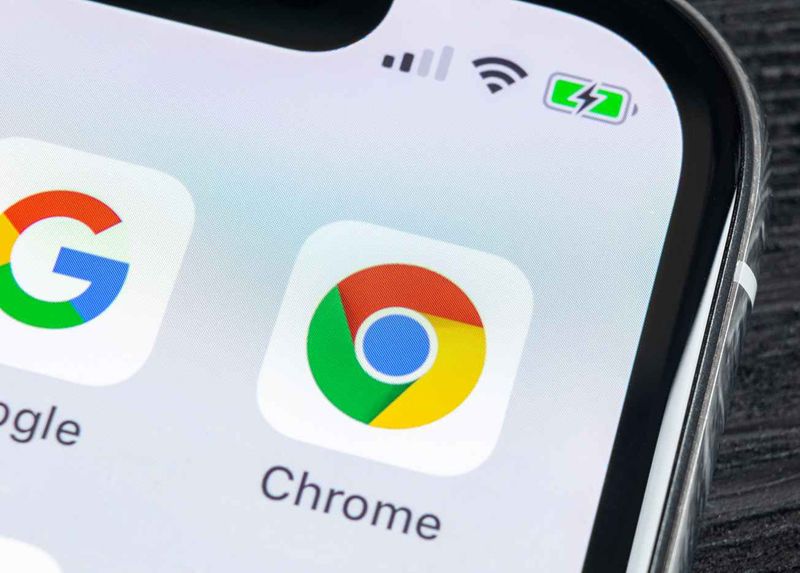Google Backs Down on Chrome Auto-Logins, Cookie Deletions
Sign up to receive The Snapshot, a free special dispatch from Laptop Mag, in your inbox.
You are now subscribed
Your newsletter sign-up was successful
If you're among the Google Chrome users peeved about the browser's new automatic sign-in feature, then you're in luck. Google has caved to the angry (online) masses, announcing early today (Sept. 26) that it will soon let you sign into a Google account without automatically signing into Chrome.
Earlier this week, Johns Hopkins cryptography professor Matthew Green discovered that the latest version of Google Chrome automatically signed him into the browser whenever he navigated to an online Google service (such as Google Calendar, Maps, Gmail, and the like) and he was already logged into Google.
This enraged him and many other users who had preferred not to sign into Chrome to keep their browsing history private, and Green explained his thoughts further in a blog post entitled "Why I'm Done with Chrome."
MORE: Best Chromebooks Available Now
Signing into Chrome is a separate process from signing into Google. Signing into Chrome lets you share bookmarks and browsing history across every device you use, but until now, you didn't need to do it even if you were already signed into Google on a PC, Mac or iOS device. (You're always signed into Google on Android, so, as one Twitter reply to Green's Twitter rant said, "there is no escape" there.)
Green assumed that the new automatic sign-in to Chrome, which began with Chrome 69, the current version, automatically uploaded your browsing history and bookmarks to Google. After all, that's how you can sync those items across instances of Chrome on multiple devices.
However, Google security engineer Adrienne Porter-Felt responded to Green on Twitter, clarifying that the automatic login was actually a privacy feature to make sure that multiple people using the same device didn't use each other's accounts -- and that the syncing of browsing history was a feature you now had to opt into.
Sign up to receive The Snapshot, a free special dispatch from Laptop Mag, in your inbox.
That didn't quell the online firestorm, and another dodgy-sounding Chrome feature soon emerged -- it turned out that in Chrome 69, deleting all cookies didn't delete Google cookies.
In a blog post today, Chrome product manager Zach Koch announced that, in response to such feedback, the company will now allow users to turn off the auto-sign in feature and let them clear all cookies.
"We've heard -- and appreciate -- your feedback," he wrote.
Koch further outlined the original intent of the auto-login feature, which was to "prevent users from inadvertently performing searches or navigating to websites that could be saved to a different user’s synced account."
In other words, for family computers or other shared devices, automatic sign-in helped Chrome make sure everyone's browsing data was correctly attributed.
Still, Google probably should have realized this change would cause an uproar, especially since the change was not publicized. As for Green, he said he appreciates the outreach, but he's still going to "start separating from Google."
To turn off auto-sign-in on the newest Chrome build, go to Settings > Privacy and Security, and toggle "Allow Chrome sign-in" to off.
Credit: BigTunaOnline/Shutterstock
Chrome Browser Tips
- How to Reduce Memory Usage in Chrome
- How to Silence Noisy Tabs in Chrome
- Hide Your Chrome Browsing From Your Boss
- Enable Guest Browsing in Chrome
- How to Make Chrome More Touch-Friendly
- How to Enable Do Not Track in Chrome
- How to Put Chrome in High Contrast Mode
- Remove Extensions from Chrome
- How to Resume an Interrupted Download in Chrome
- Protect Yourself from Spoilers with the Chrome Browser
- How to Create Desktop Shortcuts for Web Pages Using Chrome
- How to Use Chrome Extensions in Incognito Mode
- Disable (and Enable) Notifications in Chrome
- How to Use Chrome's Built-in Task Manager
- Add a Home Button to Chrome
- How to Change Your Default Search Engine in Chrome's Omnibox
- Show Frames Per Second in Chrome
- Get Gmail Notifications in Chrome
- How to Clear Your Internet History in Chrome
- How to Stop Pop-Ups in Chrome
- How to Prevent Scrollbar Jumping
- Change the Download Folder
- Firefox Quantum versus Chrome

